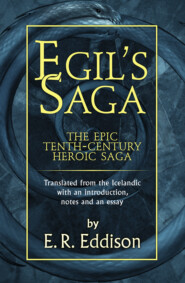По всем вопросам обращайтесь на: info@litportal.ru
(©) 2003-2024.
✖
Mistress of Mistresses
Автор
Год написания книги
2019
Настройки чтения
Размер шрифта
Высота строк
Поля
Ces serments, ces parfums, ces baisers infinis,
Renaîtront-ils d’un gouffre interdit à nos sondes,
Comme montent au ciel les soleils rajeunis
Après s’être lavés au fond des mers profondes?
– O serments! ô parfums! ô baisers infinis!
BAUDELAIRE
CONTENTS
Cover (#u7f85330d-504b-5c7e-a19b-b2f1bcc9278f)
Title Page (#u0b89d958-41b7-5a95-926a-955803faaf27)
Copyright (#ue27ce6ff-f2a2-568a-9ccd-3ac5f89dc500)
Dedication (#u98f4454c-e70e-5685-abcf-b71549def8fe)
Epigraph (#ubf7e0827-c7a0-5aa5-bad0-0ad284608f09)
Foreword by Douglas E. Winter (#u534f6659-7ff5-5901-a67c-7507d117ec20)
THE OVERTURE (#u093b4160-de38-555a-843d-c0842f7bba73)
ZIMIAMVIA (#ufe7e13be-0693-5186-a6c3-fe72e3366cf7)
I. A Spring Night in Mornagay (#ub0296704-92b4-5676-adde-034a9d0b64b2)
II. The Duke of Zayana (#ufee142db-bd1d-514a-b488-8ede7c4a65b5)
III. The Tables Set in Meszria (#ube1db29e-822d-5428-a8a0-d9b4cdd89396)
IV. Zimiamvian Dawn (#u05862199-1ef0-5e12-99b6-9b470d37f03b)
V. The Vicar of Rerek (#u1df5d449-0f73-55ee-b546-3905a3e0cc39)
VI. Lord Lessingham’s Embassage (#ua3942d33-0645-52e6-9f07-5a0e3c506636)
VII. A Night-Piece on Ambremerine (#litres_trial_promo)
VIII. Sferra Cavallo (#litres_trial_promo)
IX. The Ings of Lorkan (#litres_trial_promo)
X. The Concordat of Ilkis (#litres_trial_promo)
XI. Gabriel Flores (#litres_trial_promo)
XII. Noble Kinsmen in Laimak (#litres_trial_promo)
XIII. Queen Antiope (#litres_trial_promo)
XIV. Dorian Mode: Full Close (#litres_trial_promo)
XV. Rialmar Vindemiatrix (#litres_trial_promo)
XVI. The Vicar and Barganax (#litres_trial_promo)
XVII. The Ride to Kutarmish (#litres_trial_promo)
XVIII. Rialmar in Starlight (#litres_trial_promo)
XIX. Lightning Out of Fingiswold (#litres_trial_promo)
XX. Thunder Over Rerek (#litres_trial_promo)
XXI. Enn Freki Renna (#litres_trial_promo)
XXII. Zimiamvian Night (#litres_trial_promo)
NOTE (#litres_trial_promo)
DRAMATIS PERSONAE (#litres_trial_promo)
MAPS OF THE THREE KINGDOMS (#litres_trial_promo)
ALSO BY E. R. EDDISON (#litres_trial_promo)
ABOUT THE PUBLISHER (#litres_trial_promo)
FOREWORD (#ulink_90051bfd-a1c9-5dba-980c-178b0f84b889)
BY DOUGLAS E. WINTER (#ulink_90051bfd-a1c9-5dba-980c-178b0f84b889)
‘Is this the dream? or was that?’
WORDS create worlds: storytelling is a kind of godhood, taking the imperfect day of language, moulding it in the writer’s own image and, with skill, breathing it to life. The task is a formidable one, and it is little wonder that most fiction is content with reinventing reality, safely sculpting what is known. And why not? Stories are for the most part entertainment, ephemeral, meant only for the moment. Few novels strive for life beyond their covers; few hold us in their dominion for years, fewer still for lifetimes. The words and the worlds of E. R. Eddison, which I first discovered more than twenty years ago, still intrigue me, uplift me, haunt me, today. I know that I am not alone.
Eric Rücker Eddison (1882–1945) was a civil servant at the British Board of Trade, sometime Icelandic scholar, devotee of Homer and Sappho, and mountaineer. Although by all accounts a bowler-hatted and proper English gentleman, Eddison was an unmitigated dreamer who, in occasional spare hours over some thirty years, put his dreams to paper. In 1922, just before his fortieth birthday, a small collector’s edition of The Worm Ouroboros was published; larger printings soon followed in both England and America, and a legend of sorts was born. The book was a dark and blood-red jewel of wonder, equal parts spectacle and fantasia, labyrinthine in its intrigue, outlandish in its violence. It was also Eddison’s first novel.
After writing an adventure set in the Viking age, Styrbiorn the Strong (1926), and a translation of Egil’s Saga (1930), Eddison devoted the remainder of his life to the fantastique in a series of novels set, for the most part, in Zimiamvia, the fabled paradise of The Worm Ouroboros. The Zimiamvian books were, in Eddison’s words, ‘written backwards’, and thus published in reverse chronological order of events: Mistress of Mistresses (1935), A Fish Dinner in Memison (1941), and The Mezentian Gate (1958). (The final book was incomplete when Eddison died, but his notes were so thorough that his brother, Colin Eddison, and his friend George R. Hamilton were able to assemble the book for publication.) Although the books are known today as a trilogy, Eddison wrote them as an open-ended series; they may be read and enjoyed alone or in any sequence. Each is a metaphysical adventure, an intricate Chinese puzzle box whose twists and turns reveal ever-encircling vistas of delight and dread.
Eddison’s four great fantasies are linked by the enigmatic character of Edward Lessingham – country gentleman, soldier, statesman, artist, writer, and lover, among other talents – and his Munchausen-like adventures in space … and time. Although he disappears after the early pages of The Worm Ouroboros, Lessingham is central to the books that follow. ‘God knows,’ he tells us, ‘I have dreamed and waked and dreamed till I know not well which is dream and which is true.’ One of the pleasures of reading Eddison is that we, too, are never certain. Perhaps Lessingham is a man of our world; perhaps he is a god; perhaps he is only a dream … or a dream within a dream. And perhaps, just perhaps, he is all of these things, and more.
In a transcendent moment of The Worm Ouroboros, the Demonlords Juss and Brandoch Daha, searching desperately for their lost comrade-in-arms, Goldry Bluzco, ascend to the dizzying heights of Koshtra Pivrarcha. There, in the distance, they see paradise. Lord Juss speaks:








